Critical voicing, reading, enactment of Alien (1979). Process of audio-visual documentation. Generation of a subtext to the script.
Meeting at Rue Manchester at 10h. Finishing at 15-16h.
Critical voicing, reading, enactment of Alien (1979). Process of audio-visual documentation. Generation of a subtext to the script.
Meeting at Rue Manchester at 10h. Finishing at 15-16h.
The city of Brussels is holding a part of my past. I will take you to one of the most historical places of Brussels. Please bring headphones if you have. It would be nice to have a piece of paper and pen. thanks.
meeting point: apass
time: 14h
duration: 3-4h
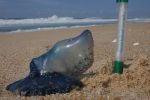
The excursion is a first encounter with the Flemish Marine Institute and its work. It includes a tour of the Marine Station and the Research Vessel Simon Stervin in the port of Ostend. Our guide will be André Cattrijsee, who is the "research infrastructure manager" of the FMI.
During this excursion, I propose for us to focus our attention on how the ocean is studied in a scientific context. What kind of language is used to describe it? And what kinds of instruments are used to measure it? What are the categories that result from those measurements? And what kind of ocean is produced as a result? As a score for this excursion, I therefore propose to shift slightly the way we listen and experience this tour of a marine research institution. Instead of simply following the content of what is said, could we also discern the knowledge dispositive within which this tour takes place? And how does this dispositive affect, finally, the "object" of its study?
In the framework of my research project "Oceanographies" I am interested in finding ways to summon the ocean by means of storytelling and performance. The project in inspired by a personal fascination with this liquid space and its properties. Its materiality, the traces it leaves on the body, its infinite blue transparency, the way it reflects the light, the physical –and temporal– limits it imposes are some of the ways the ocean can “speak” to me. In my research I study this “language” of the ocean by collecting stories from different people’s encounters with it. The focus of the research is therefore not about the ocean “in itself”, devoid of the human presence. Rather it is the relation of the hands to the mud, the ears to the breaking of the waves, the feet to the feeling of sinking, that the work focuses on. The research project weaves the complexity that arises from those interactions into the tellings of stories and their demonstrations.
I perceive the excursion to the flemish marine institute as a first step towards a longer term collaboration with this institution. I intent to also introduce the researchers of the institute to my oceanic research and hope that I can enter into conversations with them about their experiences of the ocean and the storytelling of those experiences.
An excursion is a military term to describe a short entry to enemy territory without formal announcement of war. This excursion is an invitation to explore the ways in which spaces and materials can become instructions and how this relates to participation in complex systems. What is the the agency of things, participants and also the host. Can we listen to things in order to decipher their fictions? And can we remain complicated to each other? You will visit the Kantcentrum in Brugge and the NATO Headquarters in Evere . I will do my best to host you. You will be largely following instructions, reading, making, observing, walking and looking for gaps. You will then return to a playground for discussion at a.pass. I will make you dinner.
Part 1: Koninklijke Sinte-Maria Straat 106 + time to be confirmed (waiting for a confirmation!)
Part 2: 7 - 8.30pm @ a.pass
Duration: 5 hours + 1.5 hours (with a break in between)
Coming together in a place. Where and how do our perceptions, according to the surrounding/the place and the situation where we are, manifest themselves? Where and how can we locate them in our body? How is our intuitive reaction? Linked together in groups, we would then — following a score-proposal — try out how everybody`s own intuitional desire of where and how he/she wants to move is affecting the movement of the others in the group as well as their movement is affecting each one. Afterwards everybody is invited to create a zine in any form – according to ones wish – trying to remember the different impressions and the thoughts, feelings, that they provoked.
2pm: Cité administrative de l'État – Bruxelles, close to botanique. (TBC)
Duration: approximately 2,5h
How can we think together? How can we make Space for deep reflection on complex issues? How can we come close enough without intruding? How can we engage in group dialogue and take the time that is needed to think before producing more, contributing more to the system we are locked within?
A day of observing, listening, walking, kneading, thinking, talking and baking, as we navigate a critical socio/political issue that effects us all and will continue to affect us in the forceable future.
14h to 18h (approximately) Meeting place: 14h apass 4th floor
Bring Warm clothes, a smartphone with WhatsApp, Headphones
[if you do not have a smartphone/whatsApp/headphones please inform me prior to the day of the excursion and I will supply an alternative]
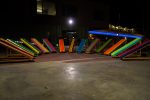
"- You shine through my atmosphere. And when you show up, my mountains move like bushes in the wind, and the rocks are scattered on all sides. I hear you. I hear an amazing bang like a storm to come. I hear the noise of thunder, the voice of demons, the winds, the monsters. The whole earth rises, dilating like the waves of the sea and my surface breaks down. My own ground seems to subside and... we need to find another ground to walk by: the unpromised land and the magics balls... "
14h - starting point: Microfactory (Quai Fernand Demets 55, 1070 Anderlecht) - Duration: 2 or 3 hours - obs: wear comfortable shoes
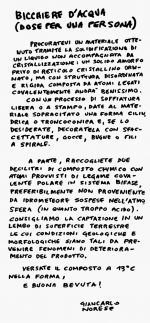
Imagine natural daylight, the best kind of light to see things clearly. Then imagine the light getting brighter and brighter, until it becomes so blindingly white that you are filled with anxiety. The information overload that we experience in our everyday lives is similar to that blinding light. Its origins date to the early 90s, when computer networks attained critical speeds and scales. Today, each of us yearns to be informed 24/7. The dictatorship of information creates in us a desire for round-the-clock information. We have become the organic components of an integrated global data and information system. Yet this yearning we feel is about our search for the Real, which a never-ending stream of information, that informs us only of the reality of facts, can neither satisfy nor fulfil. Because information is always directed at you. Information informs but is no guarantee of getting any closer to the truth. In fact, information sometimes operates as an obstacle to the truth. Instead, what if we started to filter out what we could of the information, in order to better understand the truth? What if we ignored information about the given facts and instead tried learn about something or someone for ourselves?
meeting time and point
Starting at 14:00 - Greenway Veggie Resto Leuven (Parijsstraat 12)
4 hours
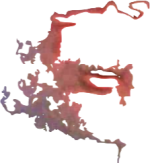
'Het Gezin Van Paemel' (The Family Van Paemel) by Cyriel Buysse is a 114-year old theatre piece that's still showing the flemish what it means to be flemish. The excursion will bring us to an amateur theatre company rehearsing the piece. Why are they, and with them lots of other amateur companies, still so interested in this piece? Why am I? My questioning will be mainly about one scene in particular: the son who goes to tell his father he's leaving for America. An America he only knows through stories, an America that personifies a better life. How is this flemish identity created (the I) by the staying and the leaving? And how is America (the other) created? And isn't all emigrating originating in 'The America of the Soul'? How is this construction of I a mask/conditioning? How is history as a re-construction keeping all these notions in place? How will I go from here to using masks again? And how will I finally get out of Flanders?
Meeting point a.pass 4th floor at 16:30.
Two cars leave at 18:00 to drive to Tejater De Orchidee in Tielen.
At 20:00 starts the rehearsal, following that an interview. Then ride back to Brussels.
Back in Brussel latest by 23:30.
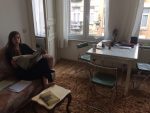
"From I to we" serves as an introduction into my practice inside its subjective core: my own home. After a performance the audience is invited to rewrite the script, rewarded with a warm meal cooked by the artist herself.
The structure of the excursion will consist of two parts; first a performance and introduction to my practice, followed by a participatory performance/workshop. Right now at a.pass my biggest challenge is to “break open” my own research practice, to make it open and shareable. In general you could say that my work attempts to go inside, towards some kind of “essence” or fundamental understanding of reality and/or the self. First I try to deconstruct a context, digging towards some kind of subjective center or essence (a true center which is, even in this subjective form, never to be found). Then I try to reattach these findings back to the context, communicating them, telling stories about them, making them real. In my performance I will introduce myself and some of these lines of thought.
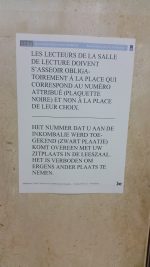
“…a 100% probability of nothing happening, and that’s often when it’s more interesting…”
– Peter Ryan, ABC Senior Business Correspondent, 2 October 2017
On Monday 23 October 2017, several todays, today. An instruction-based, public yet solo, listening & reading exercise, derived from radiowaves. Thinking about the public mind and testing what is produced from chance and structure. How language functions on different registers, at once, in time, and beyond us.
//// Please bring ID for library registration, a smartphone/laptop (with charger) and head/earphones.
meeting:
Koninklijke Bibliotheek van België / Bibliothèque Royale de Belgique (kbr.be), Kunstberg / Mont des Arts, 1000 Brussels (Central Station). Meet Eleanor in the lobby, please advise the time you will come, between 11h and 12h. Piece lasts approximately 5 hours (including regular breaks).
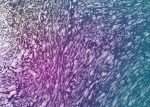
In the course of the upcoming two weeks the a.pass researchers of this block will each propose an excursion coming out of their current research focus. You are cordially invited to join. Please sign up on the a.pass main page on the detail page for each of the proposals.
26. Okt
Eleanor Ivory Weber
The World Today / All In The Mind
"“…a 100% probability of nothing happening, and that’s often when it’s more interesting…”
– Peter Ryan, ABC Senior Business Correspondent, 2 October 2017
On Monday 23 October 2017, several todays, today. An instruction-based, public yet solo, listening & reading exercise, derived from radiowaves. Thinking about the public mind and testing what is produced from chance and structure. How language functions on different registers, at once, in time, and beyond us.
//// Please bring ID for library registration, a smartphone/laptop (with charger) and head/earphones. "
24. Okt
Pia Louwerens
From I to we - Excavating reality together, at home
From I to we serves as an introduction into my practice inside its subjective core: my own home at Rue Blaes 244. After a performance the audience is invited to rewrite the script, rewarded with a warm meal cooked by the artist herself.
25. Okt
Hoda Siahtiri
If the past is really passed?! An introduction to co-experincing the others' trauma.
The city of Brussels is holding a part of my past, I take you to one of the most traumatic places of Brussels for me.
26.Okt
Geert Vaes
La Flandre Profonde/Into The Heart Of Flanders
Visiting and interrogating theatre amateurs rehearsing 'Het Gezin Van Paemel', a flemish classic and theatrical mask for a flemish identity. The 'interrogation' consists of a group constellation + witnessing the rehearsal + an interview.
27. Okt
Sven Dehens
Untitled Excursion
Critical voicing, reading, enactment of Alien (1979). Process of audio-visual documentation. Generation of a subtext to the script.
30. Okt
Shervin Kianersi
For to Know Nothing Is Nothing
Imagine natural daylight, the best kind of light to see things clearly. Then imagine the light getting brighter and brighter, until it becomes so blindingly white that you are filled with anxiety. The information overload that we experience in our everyday lives is similar to that blinding light. Its origins date to the early 90s, when computer networks attained critical speeds and scales. Today, each of us yearns to be informed 24/7. The dictatorship of information creates in us a desire for round-the-clock information. We have become the organic components of an integrated global data and information system. Yet this yearning we feel is about our search for the Real, which a never-ending stream of information, that informs us only of the reality of facts, can neither satisfy nor fulfil. Because information is always directed at you. Information informs but is no guarantee of getting any closer to the truth. In fact, information sometimes operates as an obstacle to the truth. Instead, what if we started to filter out what we could of the information, in order to better understand the truth? What if we ignored information about the given facts and instead tried learn about something or someone for ourselves?
31.Okt
Elen Braga
The masters meeting: A Journey to the unpromised land and the magic balls
You shine through my atmosphere. And when you show up, my mountains move like bushes in the wind, and the rocks are scattered on all sides. I hear you. I hear amazing bang like a storm to come. I hear the noise of thunder, the voice of demons, the winds, the monsters. The whole earth rises, dilating like the waves of the sea and my surface breaks down. My own ground seems to be subside, and... Take your hand car and come with me. We need to find another ground to walk by: the unpromised land and the magics balls...
1.Nov
Leo Kay
The time it takes to think
How can we think together? How can we make Space for deep reflection on complex issues? How can we come close enough without intruding? How can we engage in group dialogue and take the time that is needed to think before producing more, contributing more to the system we are locked within?
A day of observing, listening, walking, kneading, thinking, talking and baking, as we navigate a critical socio/political issue that effects us all and will continue to affect us in the forceable future.
2. Nov
Luisa Filiitz
A collection of Impressions
Coming together in a place. Where and how do our perceptions, according to the surrounding/the place and the situation where we are, manifest themselves? Where and how can we locate them in our body? How is our intuitive reaction? Linked together in groups, we would then — following a score-proposal — try out how everybody`s own intuitional desire of where and how he/she wants to move is affecting the movement of the others in the group as well as their movement is affecting each one. Afterwards everybody is invited to create a zine in any form – according to ones wish – trying to remember the different impressions and the thoughts, feelings, that they provoked.
3.Nov
Eszter Némethi
War-/-Lace and Vertigo
An excursion is a military term to describe a short entry to enemy territory without formal announcement of war. This excursion is an invitation to explore the ways in which spaces and materials can become instructions and how this relates to participation in complex systems. What is the the agency of things, participants and also the host. Can we listen to things in order to decipher their fictions? And can we remain complicated to each other? You will visit the Kantcentrum in Brugge and the NATO Headquarters in Evere . I will do my best to host you. You will be largely following instructions, reading, making, observing, walking and looking for gaps. You will then return to a playground for discussion at a.pass. I will make you dinner.
17. Nov
Marialena Marouda
Flemish Marine Institue: Marine Station Ostend (MSO)
A tour of the Marine Station Ostend and its research vessel Simon Stervin by marine biologist Dr. Andre Cattrijsee. My interest is to get a glimpse of the tools that the research institute uses in order to study the ocean. What language is used and what are the measurement instruments in the laboratories? What kind of ocean is produced through them?
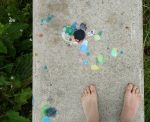
Part one: Reading, Inspiration and Preparation
Sept 4th-30th
More information about the block soon!
Safe space is a term used for an area or forum where either a marginalized group are not supposed to face standard mainstream stereotypes and marginalization, or in which a shared political or social viewpoint is required to participate in the space. For example, a feminist safe space would not allow free expression of anti-feminist viewpoints. Physical safe spaces are often reserved only for members of the oppressed group.
This excursion wants to question what places in the city can be considered as safe- and un-safe-spaces, and if our interpretation of our own identity(ies) affect this definition. Does age, race, gender, national origin, religion, physical or mental ability, sexual orientation, class etc apply to our connotation of a safe-space. Do we sometimes reconstruct our own identity(ies) in different spaces in order to be safe, or in order to keep the space safe for others. What makes a space safe for some while un-safe for others. Do we unconscious search or attract these safe spaces and avoid the un-safe spaces. What uninvited situations would occur if we consciously turned this around for a day.
Practical information: The excursion is an individual travel through some specific spaces of Brussels and can be done anytime, if you contact Xiri.
Participation and time schedule: Participants outside of the A.pass program is very welcome to join this excursion, but as its an individual route (you can not walk with other people), you will have to subscribe individually on this email: xiritaranoir@gmail.com
To subscribe for the excursion please write to the above mentioned email with the time and day you wish to make the excursion (around 1-2 hours any day between 9-18).
When you subscribe for the excursion you will receive your own individual time scheduleIf you have a specific wish for the time schedule please mention it in your subscription and it will be taken into account.
All participants will receive a personal letter by email containing the map of your route and some personal instructions during the route.
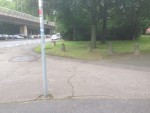
My suggestion for excursion is to try perceive particular space, as still-non-defined-space. We will go to this kind of space, which has potential to stimulate different directions in conversation. We will stand in a waiting line with other participants and “receive” what this space gives to us. How do we perceive and measure this? What we are perceiving and how does this influence our behavior. Body position, relation, potential to become statement.
The way we are going to observe this space will give us information, which will be starting point to get involve into conversation with others. Which gesture that space suggests? We will chose and be able to change position in the space, making relations. Question is how conversation grows and how do we mediate that space, and space between us. Conversation (speech and body language) will be main tool of being influenced. We are part of the context and are becoming its content. We will let political to appear.
In conversation, we will try to avoid introducing or presenting ourselves. Focus should stay with starting point and affect of the space. We are creating behavior that could be content supported by space as its context.
Everything is going to be recorded and transmitted by skype, as silent observer. There is notion of heterotopia, which pertains into space we are in. How all this influences our behavior?
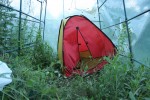
Together we will walk from Station Haren Zuid towards Brussels along the railways.
Underway we will exaggerate and share our urge to pick up and play with any things that trigger our curiosity and find temporary homes possible new belongings. After the walk we will set up a studio camp in a field between Gare de Schaerbeek and Gare du Nord where we can work with our findings and get some sleep.

A one day practice-based and experimental excursion-workshop that will focus on reflecting on Art Institutions - how they present themselves and how we, as artists,art workers or general public, would act upon them, given the power to make decisions. During the excursion-workshop we will visit an Art Institution and, through a staff’s guided tour, we will learn about the “non visible” work that maintains and moves it’s dynamics, making it possible for its structure to be ready to receive art shows, projects, presentations, etc. During this encounter we will address issues such as:
- what kind of decisions are underneath the proposed experiences? - which operational dynamics could be different, and which are to be preserved? - where does that which is visible and not visible intersect?
Afterwards, the group of participants will work expressing thoughts, desires, and ideas, by re- imagining the problematics through diagram drawing; in order to propose the operations, systems, and movements we would like to put in place if we were to create an Art Institution.
This workshop invites the participants to step out of a passive critical position and engage in an active role in the making of an Art Institution. Subjective ideas and points of view will be able to inform an institutional and collective structure:
- if I was to do it, how would I do it? - for me, what should be a priority within an Art Institution? - is there anything I would like to know about an Art Institution before experiencing its Art? - for who is this Institution for and what does it do?
By making use of visual language to express the group’s vision of possibilities, the workshop aims to dislocate the common use of discursive language used to address institutional issues and re-imagine it’s possible structuring. Drawings made during the workshop will be collected and made into a poster to be distributed both to the participants and to the receiving Art Institution as a collective feedback tool.
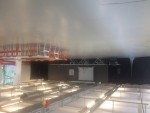
Wondering around the community of Molenbeek we will enter four different social cultural centres. In each one we will get to know their activities , their aims and their relation to the political economical conditions of a community like Molenbeek.
prelimnary Schedule
at 10:00 we meet at a.pass (gate)
at 10:30 Raquel will receive us in the new space of maison des cultures
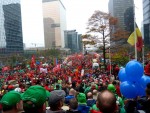
Next Tuesday, the 24th of may, the three biggest labour unions of Belgium are calling for a collective demonstration through Brussels. They march against austerity measurements that weigh heavy on the general public but refuse to demand a similar effort of the top percent. They march against a deregulation of the working hours that would push burn-out and stress statistics to all time highs.
As an artist and researcher at a.pass, I want to explore how I as an artist can be there. Do I protest, or stage a performance? Can a group of artists take part in this manifestation, as a block, a community, with their own sincere slogans? The dockers, the metal workers, the office clerks, the artists, as different perspectives and simultaneous retellings of the same discontent and j'accuse.
This is an open invitation to participate in this experience/experiment. Everyone who wants to join our artist block is welcome the 24th of may, at 10:00, in the a.pass studio, rue Delaunoy 58, 1080 Sint-Jans Molenbeek, Brussels. There we will shortly discuss our participation, slogans, and movement as an artist block within the manifestation, to then from there walk to the North Station and join the manifestation.
Researchers Participants in the Postgraduate Program
Esta Matkovic
Esteban Donoso
Juan Duque
Luiza Crosman
Maarten Van den Bussche
Sana Ghobbeh
Sina Seifee
Sébastien Hendrickx
Thiago Antunes De Oliveira Santos
Xiri Noir
Research End Presentations
Tinna Ottesen
Research Centre Researchers
Adriana La Selva
Adva Zakai
Mala Kline
Partners
PAF Performance Arts Forum
Constant vzw
Wiels
Thermae Grimbergen
Tour&Taxis
GC de Vaartkapoen
Centre maritime
Maison de Quartier Liberateur
Bains du Centre
CEN (Comité Européen de Normalisation)
Contributors for workshops
Christian Hansen
Einat Tuchman
Elke van Campenhout
Epifania Amoo-Adare
Esta Matkovic
Esteban Donoso
Femke Snelting
Gerald Kurdian
Juan Duque
Luiza Crosman
Nicolas Galeazzi
Peggy Pierrot
Peter Stamer
Sana Ghobbeh
Sina Seifee
Sébastien Hendrickx
Vladimir Miller
Coordinators a.pass
Elke van Campenhout
Nicolas Galeazzi
Vladimir Miller
Mentors
Kristien Van den Brande
Peter Stamer
Pierre Rubio
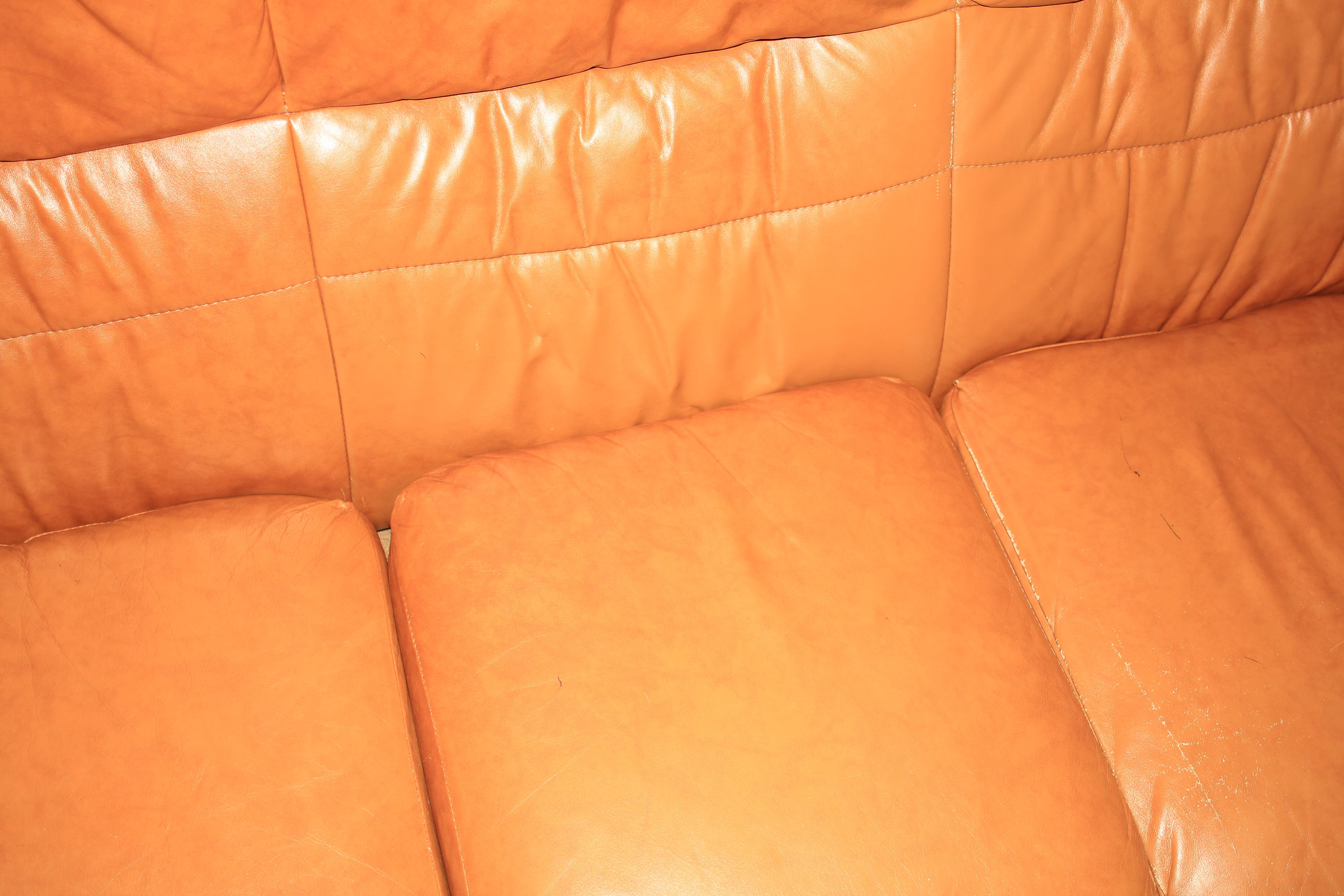
Hot bodies of the future <3 is a scored investigation of body states in parties and clubs contexts. Experienced one night through and under coloured lights, it consists in a very sensuous and playful exploration, with scores, of some or our physiologic, erotic and imaginative relationships to sounds, body movements and space while club dancing. It is also an attempt to understand and/or feel, the conditions of sexual arousal and the factors that trigger it. It results in a compilation of short written science-fictional texts recounting the different shifts, drives and metamorphoses that occurred during the participants’ experiences.
The trip I propose has two parts, the first day we will visit the swimming pool at Jeu de Bal in Brussels. While swimming we will record sounds from the site, our conversations, and sounds sprout from talking practices I have been working on. When we are back in the apass studio, we will perform our swiming pool sound documentary. We will perform it live, in swiming gear, some sounds will be broadcasted, some will be produced at the moment, some texts read live. Along with our performing, there will be a video footage of an abandoned swimming pool in Quito-Ecuador, a former military post from the XIXth century, turned into a sports complex, then abandoned from the 1970s on, this swimming pool was the site for the first Mr Ecuador contest.
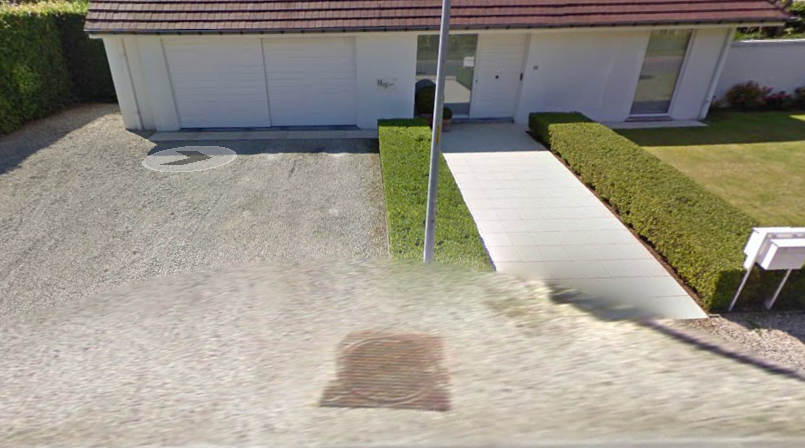
+/- 15 a.pass-participants and others travel to the place where the initiator of the trip spent most of his youth. The visit forms the basis of a collective writing score, inspired by the architecture of collaboration of a 'writers room' (a group of scriptwriters working on a TV series, a.k.a. 'a bigger brain').
We are interested in narratives, narratives that are not exclusively expressed as text or writing material but above all narratives that we can construct and develop as artistic practice.
We propose to go to Sunday market at Gare du Midi.
The market is set up on a location that operates in every day life as urban infrastructure for different functions, side walks, city streets, viaducts, rail way tracks; every Sunday those concrete and asphalted surfaces become the platform and support for the market.
We propose as an activity to gather at Gare du Midi market on Sunday and each of us, after finding a place, remain still in the same spot for about 45 minutes (or as much as the high activities of the context allow) before the finishing activity and dismantling of the market.
A main question we want to explore: For how long can we remain? In which ways can our bodies be affected when we decide to take a position that is opposite to the majority of people surrounding us in such a busy place?
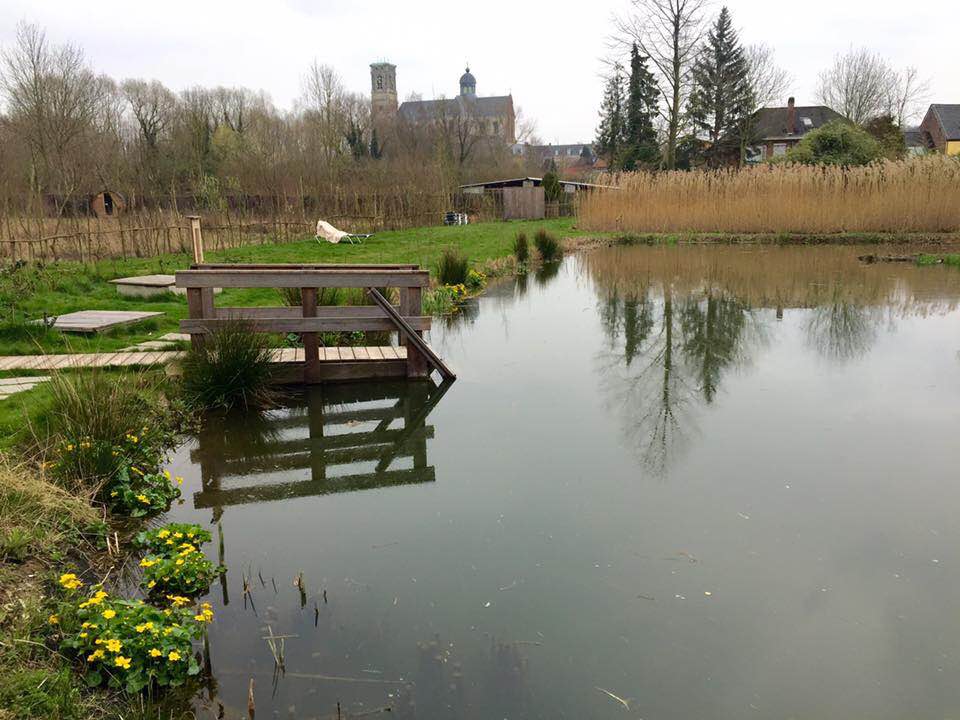
I propose a visit to Grimbergen Thermae, a spa in the village of Grimbergen, next to Brussels. I want to invite the participants to imagine this SPA as an official civic integration machinery. A fictional government would oblige newcomers to undergo a program of integration that consists in sharing saunas, swimming pools, and scrubbing sessions with locals, in a silent and relaxing environment. As to increase a familiar taste for most of the migrants, there are different thematic saunas – such as the “African Lodge”, the “Mediterranean sauna”, and the “Turkish bath” – incorporating visual and sensorial elements of different cultures.
Departing from this fictional frame, the participants will receive scores to be performed/experimented in this spa. These scores will challenge the ordinary way that we deal with physical proximity, politeness, and nudity.
What kind of choreography appears from that situation? And how does it interact with our beliefs around private and public?
Time schedule:
11:00 am - gathering at Ribaucourt bus stop (direction cathedral) close to metro station Ribauccourt.
11:25 am - departure by bus DeLijn 231
12:06 pm - arrival at Grimbergen. Talk with snacks. Walking around the village. Maybe a warm up in the Church.
13:48 pm - Entry in the spa.
16: 07 pm - Return to Brussels. (yes, you can leave before if you pay the fine ;-)
Please bring:
- towel(s) - otherwise you must rent them for 5 euros
- snacks
- (fancy) slippers - optional
- (fancy) swimming suit(s) - optional
In order to simulate our ideas for specific and challenging trips we would like to gather some Brussels ‘cracks’ - people who know Brussels form one or the other perspective by heart, know the hidden places and weird stories of this city - and invite them for a dinner at a.pass.
This dinner will take place on Monday 9th May in our Opening Week, will start at 19:00 and takes place in our space on the 4th floor of the Bottelarij, Delaunoystraat 58-60 b17, 1080 Sint-Jans-Molenbeek (Brussel)
We would like to create an informal situation with food and chats to let people engage in each other’s practices and brainstorm about Brussels as a place for an excursion. The a.pass researchers will have a lot of questions about this but a lot of things to tell about their research practice. We will ask Brussels experts to be there with their knowledge and to be open to talking about spatial settings in relation to the research practices of the a.pass participants.
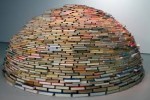

In 2015, after a public outcry against the perceived lack of diversity in emoji characters available on smartphones, the Unicode Consortium added five “Skin tone modifiers” to the set and considered the issue resolved.
As an input to MOVING RESEARCH Femke will host a one day workshop, starting from the emoji modifiers case. We will discuss how and why mainstream communication infrastructures promote universalist values and at the same time provide means for separating users along fault lines of race, gender and age. While the “modifiers” function within the universalist belief-system of Unicode, they start to function as encoded means for segregation instead of a response to the increasing complexity of cross-device and cross-cultural computing, a situation that demands a re-imagination of compatibility in terms of difference.
The workshop will be an occasion to discuss more generally what infrastructures of participation we can imagine that not only represent multiplicity but allow us to materialise it, beyond the Modern regime of universality. What universal(izing) assumptions creep into our own research and how could they be challenged? What tactics can we imagine for developing systems that are politically, aesthetically and ethically truly generative?
Modifying the Universal is developed in the context of Possible Bodies, an ongoing collaboration between artists, programmers, performers and activists that are concerned with the specific entanglements of technology, representation and normativity that (re)-appear through renderings of the virtual.
Biographies
Peggy Pierrot works on projects linking information, media, activism, radio art and technology. She runs a publishing house, Venus Negra, publishing on popular cultures, Black Atlantic, music and science fiction. A sociologist by training, she holds a postgraduate degree in multimedia engineering. Peggy worked as a journalist (Transfert.net, Le Monde diplomatique, Minorités.org) and as editorial/technical webmaster in media and non-profit projects. She lectures on African-American and Caribbean literature and culture, science-fiction or related topics.
Femke Snelting investigates interrelations between digital tools and creative practice, and develops projects at the intersection of design, feminism and free software. She is a core member of Constant, an association for arts and media active in Brussels since 1997. The collective work of Constant is inspired by the way that technological infrastructures, data-exchange and software determine daily life. Femke co-initiated the design/research team Open Source Publishing (OSP) and coordinated the Libre Graphics Research Unit.

Cities are dynamic places defined by the incessant flows of people, capital, information and ideas that traverse them. Day and night we find ourselves caught up in these rhythms, which are to a large degree completely internalized by now. Both the city and our functioning within it seem to depend on how well-synchronized all these flows are, but at the same time this repetition ends up reproducing the existing power relations and structural inequalities.
This workshop will work through a series of selected texts and ideas to collectively look for places, times and modes of being that allow for a wider margin of manoeuvrability—points where things start falling out of synch and trajectories are diverging.
Given the multiple understandings of the word 'movement' both as a change of physical location over time and in the sense of social or political movements, we will discuss the affective paths that such movement follows within the spaces of the city and the new cartographies that might be drawn in this way. Looking at the nomad as a sustainable modern subjectivity which is always in flux (via Rosi Braidotti's nomadic thought), we will explore that space of becoming and the various thresholds one might traverse and/or occupy while on the move.
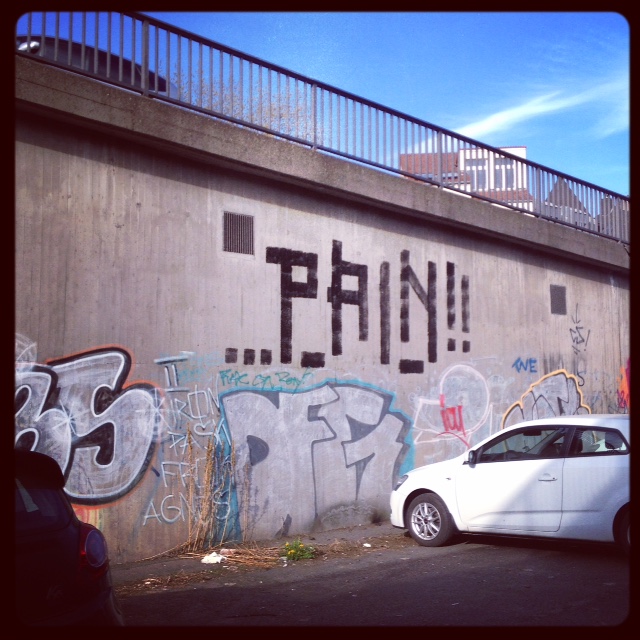
The premise of this workshop is that a critical pedagogy on the space of research knowledge production, and its related forces of (re)production, is a necessary condition for any intervention in (and of) that space. Consequently, we propose to challenge widespread understandings of research space and knowledge production as a binary researcher-researched structure that is given and fixed, in other words: a structure that is developed for and not a context that is developed by the various actors in the research process. We contrast this convention with an understanding of research space as both, a manifestation as well as a vehicle of the productive relations of power-knowledge.
More specifically we will look at the significance of the multiply-identified and mobile “research bodies,” as agents, interacting in various networks of relationships (and things) within, and beyond, a given society. We will utilize conceptual frameworks, derived from critical social theory, de-colonial thinking and being, feminisms, and geography to discuss questions such as: How does a spatially-oriented critical reading of the world inform our social construction of knowledge(s) on it? What is the relationship between spatiality, knowledge and power? How does (hegemonic) knowledge production arise as a consequence of struggles over (academic) place? How is the researcher implicated in appropriating, re-constructing and/or dismantling existing knowledge structures?
Here, we highlight the importance of positionality, threshold theories, and the open-ended becoming of researchers for better contestation of power-knowledge regimes that reify and universalize context-specific ontologies, cosmologies, ecologies, epistemologies, philosophies on existence, etcetera. Additionally, we will discuss critical perspectives, with a focus on border consciousness, positionality, the mobility paradigm, and decoloniality; all of which work to enhance our development of a more critically conscious research praxis. This will also include brief discussions on research method, as relates to questions of mobilizing and decolonizing methodologies, plus other modes for enabling the development of threshold theories as part of a process of (un)thinking hegemonic research practice and moving towards open-ended becoming(s), beyond the binaries of the researcher and the researched.
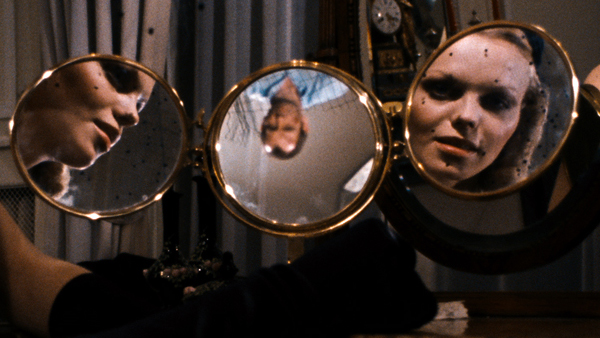
As part of the Opening Week this workshop we address the topic of feedback. Since a.pass is a shared environment, we depend a lot on each other as sparring partners in our researches. Often the work is presented within a group and the quality of the feedback is lacking in precision, understanding or communicative strength. What is important in giving or receiving feedback is that both positions are clarified: what position do I speak out of? What kind of feedback would be useful for my research?
In this workshop we try to construct very diverse feedback techniques: spoken critique, non-negotiated critique, direct feedback, indirect feedback, written, walking, one-on-one or transformative feedback.
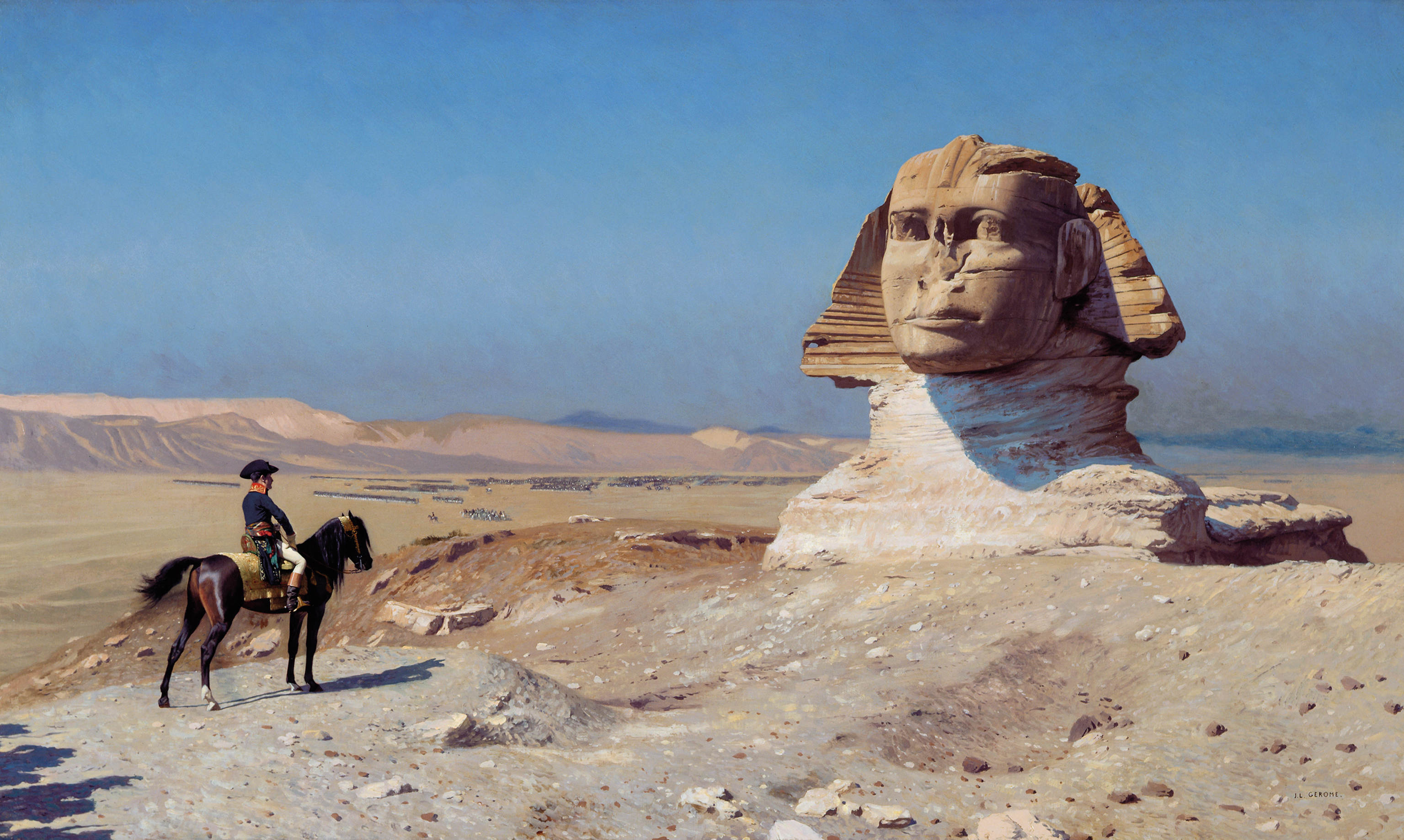
Vladimir Miller BLOCK PROPOSAL
This block is concerned with the processes and questions of a mobile, displaced, untethered research practice. We will use the methodologies of moving out, taking a trip, going for a walk to reconsider the building blocks of our research and discover new ones.
As a collective practice for this block each a.pass participant will propose a trip or an excursion to a place that resonates with the topics of her research. We understand these trips as mini workshops. They will be attended by the a.pass participants and in most cases be open to the general public on a sign-up basis. Some of them will be collaborative experiments, some will address a specific question from a current research of the a.pass participant. The already proposed places and practices range from a club all-nighter to camping in the city, from a visit to market to a silent trip to a fathers house. All proposals will work with a specific practice of being on the move together, of doing research on site, of coming back and of documenting and publishing.
Where do we practice our research, and how does changing that affect what can be talked about and experimented with? How to give a practice a new context? What can we do, think, read and try together when being on the move?
We will take this opportunity to re-examine mobility of research practices in the context of de-colonial and feminist discourse on space and its social production. How do notions of power and privilege figure into this academic exploration of the presupposed „outside“ of the institution? With our colonial histories, what does it mean today to go on an excursion, to go looking „elsewhere“ for knowledge? Which gestures of power and othering are we replicating by using these methods of (ad)venture in our research? This block will be guided by an attempt to apply de-colonial thinking to the very idea of research itself, to unlearn its innocence and to insist that coloniality and its critique apply as soon as we open our doors and step outside, and as soon as we think towards „other“ places and discourses.
To work on these themes the excursion practice will be supported by several external inputs from the areas of de-colonial theory, urbanism and feminist critique. More detailed information about those events you will find on our webpage soon.